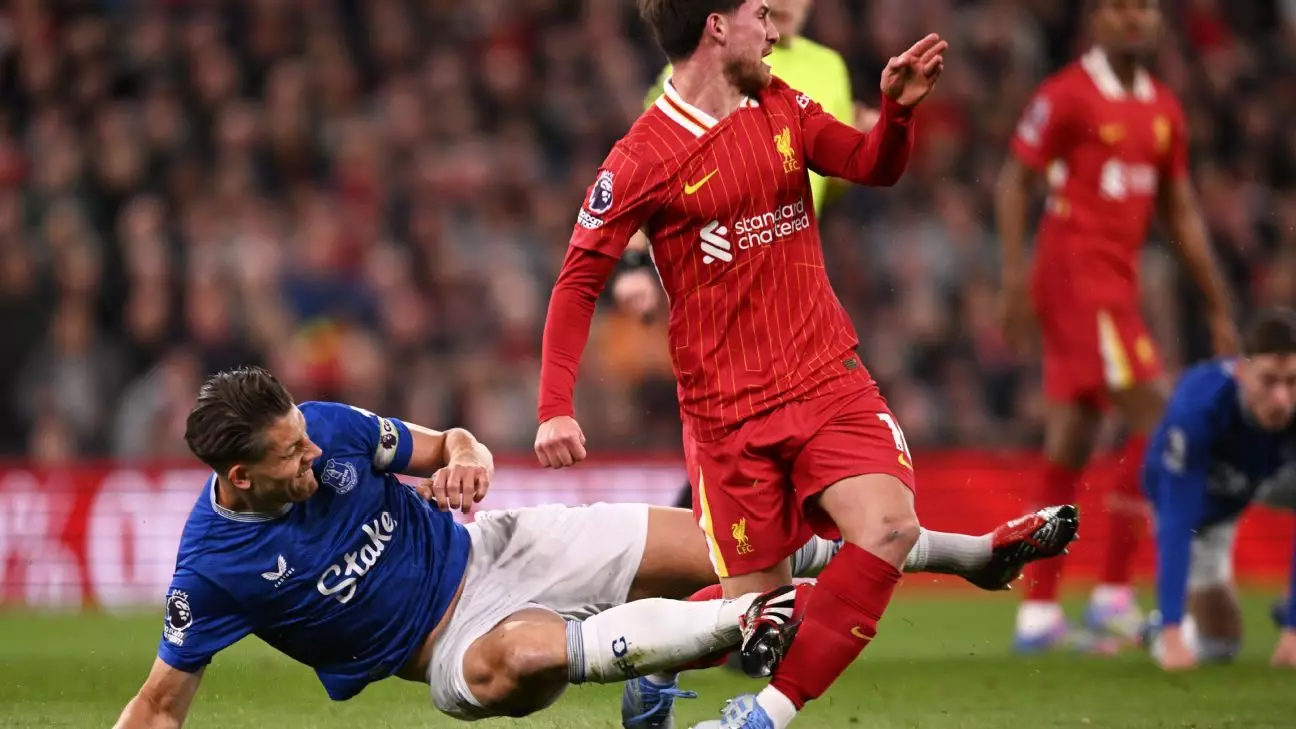The Merseyside derby rarely disappoints, and the latest clash between Liverpool and Everton was no exception. The tension that envelops this local rivalry always leads to drama, and the match held at Anfield proved to be a microcosm of the passion inherent in English football. Liverpool emerged victorious with a narrow 1-0 win, thanks to Diogo Jota’s much-needed goal. However, it was the officiating decisions, particularly concerning James Tarkowski’s tackle on Alexis Mac Allister, that sent ripples through the football community, overshadowing the game’s on-field tactics and players’ performances.
Referee Decisions: A Double-Edged Sword
In the aftermath of the game, Liverpool coach Arne Slot expressed his resignation concerning the decision not to send off Tarkowski for a high tackle. Interestingly, while Slot refrained from directly criticizing the officials, his acknowledgment of the widespread condemnation of the decision hinted at an underlying frustration. The idea that even non-Liverpool supporters saw the incident as a clear case for a red card is telling. Refereeing in critical matches often becomes a focal point for debate, but in this case, it felt as though the officiating choices undermined the integrity of the sport. VAR’s failure to intervene compounded the disappointment, raising questions about the system’s effectiveness in ensuring fairness.
Jota’s Redemption and Everton’s Woes
While Tarkowski’s tackle was a talking point, the significance of Jota’s goal cannot be downplayed. After a prolonged dry spell, his contribution served as a catalyst not only for himself but for a Liverpool side that has, at times, grappled with goal-scoring issues. Slot’s praise following the match emphasized the importance of Jota finding form again, stating how crucial the goal was for not only the player but the team and its supporters alike. The sincerity in Slot’s comments illustrated a supportive environment, one where players are given a chance to rebound from setbacks. For Everton, manager David Moyes vented frustration about a potential offside call involving Luis Díaz in the build-up to Jota’s goal. His objections reflected an understanding of how finely-tuned margins can dictate the fates of teams struggling against relegation.
The Bigger Picture: Rivalry and the Premier League Landscape
This match symbolized more than just three points; it served as a reminder of the fierce rivalry between Liverpool and Everton, a battle often defined by the emotions of the fans and the history between the clubs. Liverpool’s win solidifies their position atop the Premier League, while Everton’s continued struggle in the league intensifies. The discourse surrounding this particular derby exemplifies the broader narrative of not just individual matches but the tightly contested race for the title and the battle for survival at the other end of the table.
As the season unfolds, the ramifications of refereeing decisions, player performances, and tactical approaches will shape the narratives. Teams must navigate these pressures, while coaches like Slot and Moyes will need to harness both criticism and praise to fuel their squads. Ultimately, the Merseyside derby is not merely a series of games; it’s a testament to the drama, unpredictability, and passion that captivates fans worldwide.
